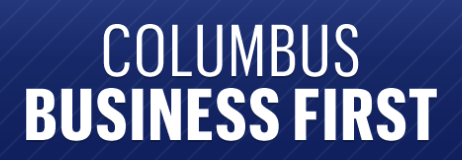If you’re job hunting in 2020, you know that receiving an invitation to a person-to-person interview can be a hard-fought victory. There’s a sense of achievement in knowing that you have prevailed where others have not. But soon interview performance anxiety may set in. We believe that if you stay ready you’ll never have to get ready. Here are some must-do’s:
Name Recognition
This is about you not the employers that you’re researching. All an employer need do is hear your name and using Google, LinkedIn, FaceBook, Twitter, YouTube or any blog to which you’ve contributed your photos, thoughts and opinions will be revealed. Many who aren’t job search savvy don’t realize how easily their information can be accessed. What a candidate posted two decades before remains. But while job seekers need to avoid incriminating information in their social media, they also have the opportunity to cultivate, control and regularly continue to optimize strong, positive impressions. Google picks up every comment you post on any blog, article or group so job seekers can purposely calculate their own public relations campaigns to methodically impress observers.
Industry Experts
Everyone races to a company’s web site before an interview. They memorize as much history and product information as possible. Then they quit and hope for the best. We teach our clients that the best way to learn about a company is to speak to someone who currently or recently has worked there. The challenge of reaching a current or ex-employee is no more difficult for the job seeker than for the millions of recruiters who successfully make this connection in order secure job orders. It’s in the courage of the job seeker to pursue an unknown individual without fearing rejection, and the rewards can give the job seeker a real advantage. Not too long ago a CFO job seeker gained an interview with a company and was able to reach the recently-retired CFO who had served in the position he was seeking. They met and the CFO made a phone call, providing a reference to the employer. No guarantee but priceless!
Advance Materials
While the world’s concerns include pandemics, climate change and the economy, job seekers continue to obsess over 2 and 3-page résumés. With entire careers at risk, candidates can take comfort that employers do not make decisions solely on page length. They look for critical information to meet their needs such as specific skills, functional areas of expertise, solid career histories and achievements. Entire résumés are seldom read and in four decades I’ve never heard a well-received candidate with a strong résumé disqualified because of an extra page. Nothing matters more than the clarity and strength of your message.
Marketing Props
Ask any hiring manager and they’ll all agree that a candidate who is unique and distinguishes has an advantage. Candidates must meet also be “good fit” and when used with discretion, interview tools help lead the employer to that conclusion. If you see you are strong in the list of job specs for an opening, why not prepare a comparison document showcasing your experience side-to-side with their needs? If prepared properly and presented at the appropriate moment the employer will see you may well bring the solutions he seeks. We have found the “leave-behind” to be another effective tool. Presented like a small and relevant brag book, it is not meant to interfere with the interviewer’s agenda. Always beware of your timing. Recently after only a 15-minute phone interview a candidate for a human resources spot prematurely submitted a 30-60-90 day proposal of improvements and upgrades should she join the company. She never did.
Strategic Questions
When actively filling positions, one can only imagine the amount of boring responses complete with clichés coming from candidates. In workshops we have actually seen employers repeat standardized answers in unison. Candidate responses tend to be about their dream jobs and their hopes for their future climb up the ladder. Many ramble on about their former working conditions and bosses. But as candidates are putting their interviewers to sleep they also continue to miss opportunities to impresses once the employer inquires if they have any questions. Unless previously enlightened, candidates will ask self-serving questions focused on what they are required to do on the job and what they will receive. We immediately refocus the conversation more on how, if hired, the candidate will contribute. Job seekers learn to first discuss the employer’s industry, its history and challenges to-date. Then the candidate focuses on the company’s ranking in the industry and finally how the candidate can contribute. The candidate’s knowledge of the industry, company, and competitors, followed by how they can contribute, lead employers to the good-fit conclusion.
There are few guarantees in job search. History and job markets tell us that the rules of engagement, including the techniques of weeding out, evaluating and ultimately selecting the chosen candidate are always changing. No matter how sophisticated or seemingly off-the-wall hiring trends become, after you submit the most compelling résumé, conquer the speed interview, stand up to horrendous behavioral event questions and provide you most thought-provoking questions, he who starts in two weeks, through proactive preparation has best delivered the message.

